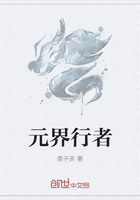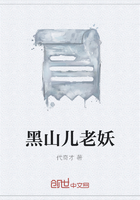One of my most vivid memories is of coming back west from prep school and later from collegeat Christmas time. Those who went farther thanChicago would gather in the old dim Union Stationat six o’clock of a December evening with a fewChicago friends already caught up into their ownholiday gayeties to bid them a hasty goodbye.
I remember the fur coats of the girls returningfrom Miss This or That’s and the chatter of frozenbreath and the hands waving overhead as we caughtsight of old acquaintances and the matchings ofinvitations: “Are you going to the Ordways’? theHerseys’? the Schultzes’?” and the long green ticketsclasped tight in our gloved hands. And last themurky yellow cars of the Chicago, Milwaukee andSt. Paul Railroad looking cheerful as Christmasitself on the tracks beside the gate.
When we pulled out into the winter night and the real snow, our snow, began to stretch out besideus and twinkle against the windows, and the dimlights of small Wisconsin stations moved by, a sharpwild brace came suddenly into the air. We drew indeep breaths of it as we walked back from dinnerthrough the cold vestibules, unutterably aware ofour identity with this country for one strange hourbefore we melted indistinguishably into it again.
That’s my middle west—not the wheat or the prairies or the lost Swede towns but the thrilling,returning trains of my youth and the street lampsand sleigh bells in the frosty dark and the shadowsof holly wreaths thrown by lighted windows onthe snow. I am part of that, a little solemn withthe feel of those long winters, a little complacentfrom growing up in the Carraway house in a citywhere dwellings are still called through decades bya family’s name. I see now that this has been a storyof the West, after all—Tom and Gatsby, Daisy andJordan and I, were all Westerners, and perhaps wepossessed some deficiency in common which madeus subtly unadaptable to Eastern life.
Even when the East excited me most, even whenI was most keenly aware of its superiority to thebored, sprawling, swollen towns beyond the Ohio,with their interminable inquisitions which sparedonly the children and the very old—even then had always for me a quality of distortion. West Eggespecially still figures in my more fantastic dreams.
I see it as a night scene by El Greco: a hundredhouses, at once conventional and grotesque, crouching under a sullen, overhanging sky and lustreless moon. In the foreground four solemnmen in dress suits are walking along the sidewalkwith a stretcher on which lies a drunken woman ina white evening dress. Her hand, which dangles overthe side, sparkles cold with jewels. Gravely the menturn in at a house—the wrong house. But no oneknows the woman’s name, and no one cares.
After Gatsby’s death the East was haunted forme like that, distorted beyond my eyes’ power ofcorrection. So when the blue smoke of brittle leaveswas in the air and the wind blew the wet laundrystiff on the line I decided to come back home.
There was one thing to be done before I left, anawk-ward, unpleasant thing that perhaps had betterhave been let alone. But I wanted to leave things inorder and not just trust that obliging and indifferentsea to sweep my refuse away. I saw Jordan Baker andtalked over and around what had happened to ustogether and what had happened afterward to me,and she lay perfectly still listening in a big chair.
She was dressed to play golf and I remember thinking she looked like a good illustration, herchin raised a little, jauntily, her hair the color of anautumn leaf, her face the same brown tint as thefingerless glove on her knee. When I had finishedshe told me without comment that she was engagedto another man. I doubted that though there wereseveral she could have married at a nod of her headbut I pretended to be surprised. For just a minuteI wondered if I wasn’t making a mistake, then Ithought it all over again quickly and got up to saygoodbye.
“Nevertheless you did throw me over,” said Jordansuddenly. “You threw me over on the telephone. Idon’t give a damn about you now but it was a newexperience for me and I felt a little dizzy for a while.”
We shook hands.
“Oh, and do you remember—” she added, “—aconversation we had once about driving a car?”
“Why—not exactly.”
“You said a bad driver was only safe until she metanother bad driver? Well, I met another bad driver,didn’t I? I mean it was careless of me to make sucha wrong guess. I thought you were rather an honest,straightforward person. I thought it was your secretpride.”
“I’m thirty,” I said. “I’m five years too old to lie tomyself and call it honor.”
She didn’t answer. Angry, and half in love with her,and tremendously sorry, I turned away.















